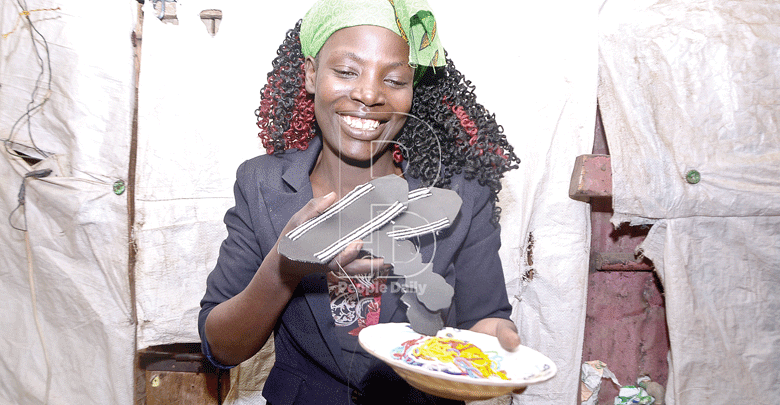How urban hunger drives kadogo economy

It is noon and parts of Mathare are slowly teeming up with crowds of young people animatedly sauntering and others in transit to various estates as lunch time fast approaches.
At the tail end of Mathare Area 1, frenzied movements and cheering attract our attention; children crowd a camel, waiting to get a ride.
The corridors are filled with burning charcoal, as retailers hurriedly check on sufurias filled with cooking beans, maize and anything fit to be eaten over lunch.
But as the streets are astir, Everlyn Auma sits quietly in her house, sewing as she waits for the evening. Her immediate thought is that her last born child doesn’t come home crying of hunger because the little money she has is meant for supper.
Unfortunately, the worst happens, and hunger stalks her child. The only way out is for Auma to make sure her child gets at least a mandazi to keep hunger at bay as she waits for the main meal. She hands over a Sh5 coin to her child in doubt. In a hollow voice, she asks her to get back home so she can take the mandazi with some water.
“Surviving in Mathare is easy, but there is no money to buy food. This is why we pick out the time to eat. If you happen to eat in the morning, the next time you will eat is in the evening,” she says.
The most important meal for Auma and her family is breakfast, which often comprises the previous night leftover’s and black tea, famously known as strong tea. When there are no leftovers, they end up taking black tea alone.
On some days, they go without food and focus only on supper, which is usually cooked early. “When my husband is not in the field for construction work, we stay the whole day without food because we can’t afford to raise even that Sh5,” she adds.
While doing her shopping, the 35-year-old mother of four makes sure she doesn’t exceed her budget, which is about Sh20 on each product. “Here, we don’t eat to get full; you eat to have food in your stomach and the basic principle of balanced diet is not followed.
This means children are exposed to health hazards. At the shop, I am able to buy cooking oil at Sh5, sugar just enough for everyone in the morning at Sh15, rice at Sh30, Omena for Sh30, flour for ugali at Sh80. This is enough for the whole day,” she adds.
It is not any different for Patrick Ratemo who spends about Sh100 a day on meals. For him, the most important meal is supper because he is able to sleep through the night. He cuts cost by purchasing food items to prepare for supper, which also acts as breakfast.
Since he lives alone, he is able to survive on soup and ugali for only Sh20. “It is hard to survive, but we are forced to. We can’t stay hungry because we don’t want to eat certain foods,” he says.
As a retailer, Mary Nduati says she hardly makes sales of over Sh800 a day because most residents don’t spend much on food. “If you stock expensive things, they eventually go bad because no one has all that money to spend on food.”







